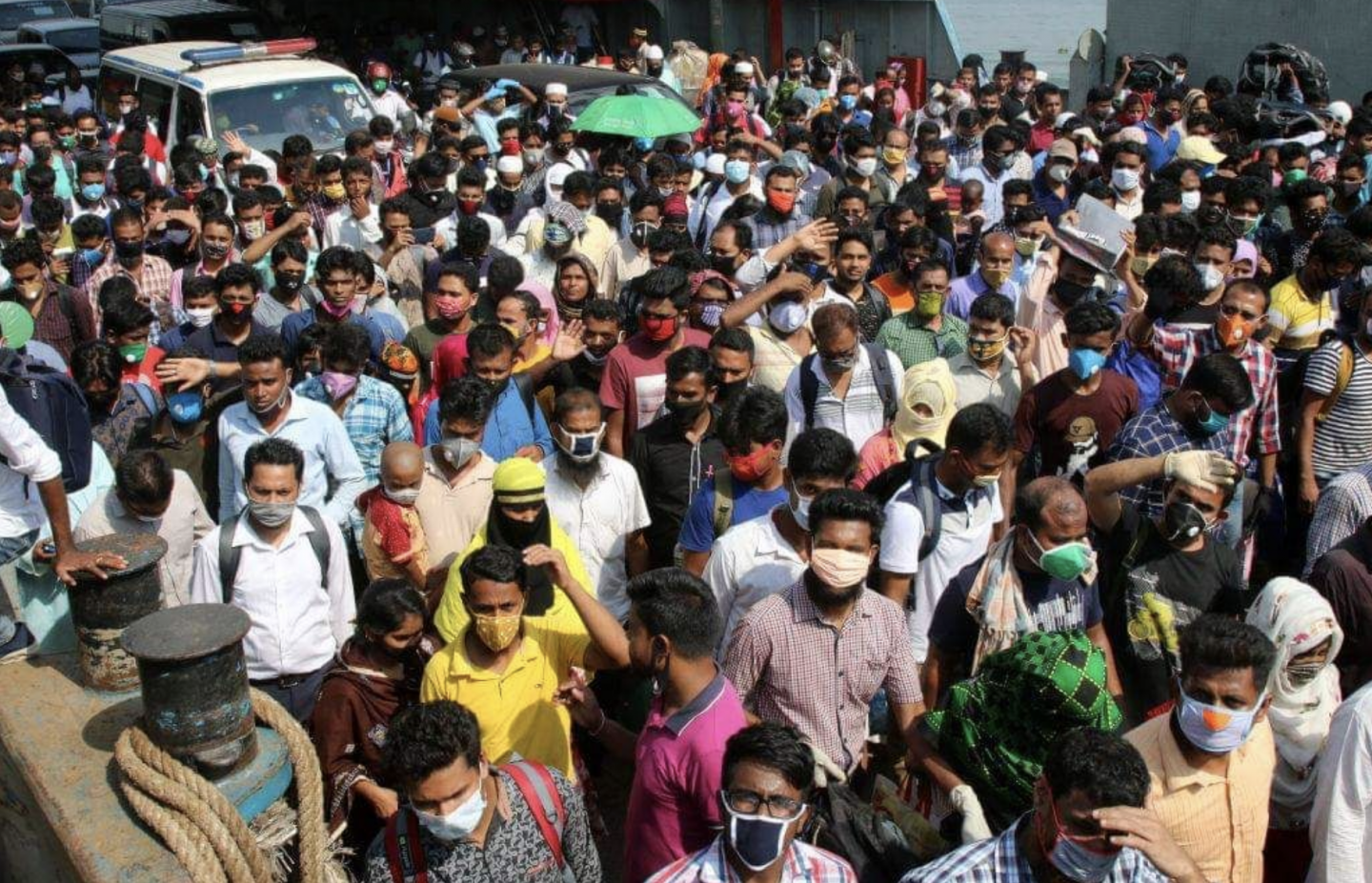8 April, 2020Thousands of workers in Bangladesh’ garment industry have lost their jobs and are denied wages as the country is under lockdown until 14 April. On 6 April, two workers were killed in an accident during protests.
As part of its Covid-19 containment, the Bangladesh government has suspended all forms of transportation services and closed public and private establishments, except essential services. Initially announced until 4 April, the closure has been extended to 14 April.
The initial announcement triggered panic among garment workers, most of whom are internal migrants. Many left Dhaka to reach their hometowns. Heart-wrenching photos from the country’s capital show workers leaving the city on crowded ferries, trucks and other unsafe modes of travel.
On 5 April, it was announced that no one is allowed to enter or exit Dhaka except for emergencies. A lack of coordination in implementing containment measures created confusion when many employers insisted workers needed to report to work to receive wages and retain their jobs.
Hundreds and thousands of workers used crowded and unsafe transportation, while many walked in groups to report to work at Dhaka, Gazipur, Narayanganj and other areas.
Without the appropriate safety measures, hundreds of factories operated with the risk of spreading Covid-19. Several factories, after subjecting workers to a dangerous commute to work, informed workers at the gate that the factory is closed until 14 April, without informing on how wages are paid.
On 6 April, the confusion triggered spontaneous protests demanding wages. A group of protesting workers were blocking the Dhaka-Mymensingh Highway after seeing their factories shut down without prior notice. A clash erupted and two workers were crushed by a truck.
Nazma Akter, president of Sommilito Garments Sramik Federation (SGSF) a member of IndustriALL Bangladesh Council, says:
“The majority of Bangladesh’ garment workers have been unfairly thrown out of their jobs, denied wages and threatened to be blacklisted if they demand their rights. Some employers have said workers would only be paid on 16 April when returning to work.
If the lockdown is extended and wages are not paid, workers’ livelihoods are under threat and they are facing starvation. Hard-earned benefits including the forthcoming EID festival bonus is also threatened. Forcing workers to work despite the risk of Covid-19 must be stopped immediately.”
Valter Sanches, IndustriALL general secretary, says:
“Brands and suppliers must realize that no worker should be left behind in this unprecedented struggle against Covid-19. The government, brands and suppliers need to work together with unions to take coordinated action to ensure wages are paid and that workers and their families are protected from the negative economic impact the lockdown may bring.
“The government of Bangladesh should ensure that workers get their share in the recently announced economic package. of 72, 750 crore Taka (US$8.5 billion).”
In a statement issued on 8 April, the IndustriALL Bangladesh Council (IBC) stated:
“Wages for the month of March have to be paid as soon as possible. In the prevailing circumstances, employers should ensure that payments are made through mobile banking system and those do not have access to it, should be paid in cash by 16 April. Lay offs, retrenchment and terminations should stop immediately. A tripartite committee consisting of government, employers and IBC has to be formed and all factories should closed during the lockdown period.”
According to the Bangladesh Garment Manufacturers and Exporters Association (BGMEA), on 7 April, the 953 million pieces of readymade garment for export worth US$ 3.05 billion have been cancelled. The cancellations affect more than 2.19 million workers.
